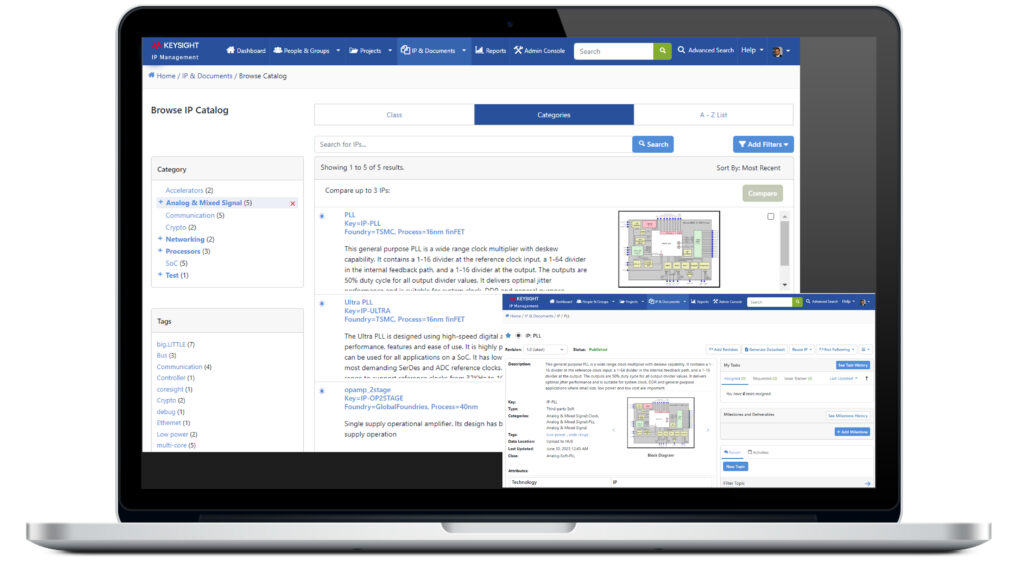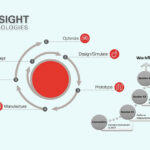ASIA ELECTRONICS INDUSTRYYOUR WINDOW TO SMART MANUFACTURING
Keysight Boosts Support for Enterprise EDA Workflows
Keysight Technologies, Inc. has introduced PathWave Design 2024, the latest release of its suite of electronic design automation (EDA) software tools. Hence, giving design engineers new software automation, design data and intellectual property (IP) management, team collaboration, and development lifecycle transformation capabilities.
Design organizations face a daunting set of semiconductor and electronics industry challenges due to rising complexity and competitive pressures to bring products to market quickly and reliably. Furthermore, engineering leaders are looking for design productivity solutions that streamline their tool workflows and enable sharing of large volumes of design and simulation data across global operations. In addition, digitize all aspects of their development programs.

Software Automation
Keysight’s new Python API for EDA workflows establishes an open ecosystem to connect and control best-in-class simulators, platforms, data exchange, and report generation to meet specific development project needs. The Python API enables Keysight’s EDA software tools to interoperate with third-party partner tools in custom-tailored automation workflows.
For example, it supports more efficient design verification and provides greater confidence for attaining first-pass success. In addition, Keysight speeds the development of automated workflows themselves by offering professional consulting and customization services for PathWave Design 2024 customers.
The Python API addresses customer requirements to use the tools in a larger ecosystem environment and control Keysight EDA software programmatically. It includes documentation and examples on how to tackle common automation challenges making Keysight tools a component of larger enterprise workflows.
Meanwhile, using the Python API for EDA workflows, engineers can streamline processes to reduce repetitive, tedious work and avoid mistakes due to human error. An example use-case is the repeated electromagnetic (EM) extraction of a printed circuit board or package for high-speed digital signals, performing channel simulation on the resulting EM model, and invoking digital standard compliance tests, in one automated process.
IP and Design Data Management
Keysight has integrated the former Cliosoft products into the PathWave Design 2024 software suite. Keysight remains committed to broad support of its IP and data management products for all major EDA tools with data originating from third-party vendors’ tools and continued support for the full Cliosoft ecosystem.
Keysight Design Data Management (formerly Cliosoft SOS) is the leading solution for hardware design engineers seeking a comprehensive and efficient design data management platform. Keysight Design Data Management empowers engineers with robust features and benefits such as optimal file archiving, advanced revision control, disk storage optimization, tight EDA vendor integration, and seamless software configuration connectivity.
Keysight IP Management (formerly Cliosoft HUB) is the enterprise solution for efficient IP management, IP reuse, and IP traceability. With Keysight IP Management, IP and system designers can streamline their IP processes and maximize productivity. Keysight IP Management empowers engineers to seamlessly organize, catalog, and track valuable IPs, ensuring easy access and efficient reuse across design projects. It provides unparalleled traceability, enabling engineers and managers to monitor the entire lifecycle of their IPs and make informed decisions.
Simulation Acceleration
Using Keysight’s Design Cloud for parallel simulation dramatically improves designer productivity. Thus, reducing simulation time by up to 80% for circuit simulation and EM simulation and enabling faster design cycles with better simulation coverage to reduce design risk. Keysight’s Design Cloud uses parallel computing across hardware deployments ranging from on-premises clusters to private, public, and hybrid clouds. Furthermore, through a turnkey cloud solution.
PathWave Design 2024 enables a new Design Cloud use-case for parallel simulation supporting electrothermal (ETH) simulation for radio frequency (RF) power amplifier design. ETH parallelization increases the accuracy of typical RF circuit simulations with dynamic large-signal stimulus, which is important for 5G and 6G applications. Parallel simulation enables coverage of more temperature corners in a shorter simulation time.




